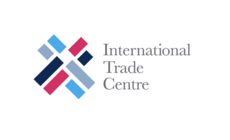Institution Background
Established in 1964, the International Trade Centre is the joint agency of the WTO and the UN. ITC is the only international development agency fully dedicated to supporting micro, small and medium-sized enterprises (MSMEs) to enable them to benefit from trade. Working with partners to strengthen MSME competitiveness, we help to build entrepreneurial and employment opportunities, particularly for women, youth and people in vulnerable situations. Our main clients are MSMEs, business support organizations (BSOs) and governments in developing countries and economies in transition.
Evaluation Function
Independence
The Independent Evaluation Unit (IEU) is the custodian of the evaluation function at ITC. It is operationally located in the Strategic Planning, Performance and Governance Section of the Office of the Executive Director, as a distinct unit. The head of IEU is responsible for the evaluation function to perform under the ITC Evaluation Policy principles and framework and the UNEG Norms and Standards. Operationally, s/he sets the evaluation priorities and workplan in a consultative but independent manner and manage the expenditure. S/he has the authority to sign off on and distribute IEU-managed evaluation reports to the governing body and/or executive head and publicly without prior clearance from other parties within or outside the Organisation. Operationally, independence principle is also considered during each evaluation management process. Independence safeguarding mechanisms include engaging with external independent evaluators quality assurance process.
Agenda setting
The Independent Evaluation Unit (IEU) prepares the evaluation work programme, including a budget, for the current year and a prospective plan for the second year. The annual work
programme is prepared based on consultation and a priority-setting process. It comprises a mix of different types of evaluations and accompanying advisory services, with resource
requirements to expected achievements and deliverables.
Evaluation coverage selection criteria and priority setting take into consideration of the results of a risk assessment, alignment to ITC’s strategic plan, proportion of ITC’s investments, maturity of the operations, value of innovation and learning, potential for future strategic development, among others.
The draft annual work programme is prepared by the Evaluation Unit in consultation with the ITC Management, and then submitted to the Senior Management Committee (SMC) for approval. The Evaluation Unit considers the options submitted by Divisional Directors, key issues arising from the Operational and Strategic Plans, guidelines from UNEG, and comments or recommendations emerging from the Joint Advisory Group (JAG) of ITC. The membership of the JAG is open to Member States of UNCTAD and Members of WTO. JAG has neither legislative nor budgetary authority, yet it has come to be the main intergovernmental policy forum in the ITC.
The SMC, management decision-making body of ITC, approves the Annual Evaluation Work Programme. The SMC ensures adequate resources for evaluation and safeguards the independence of the evaluation function. The evaluation work programme is detailed in the annual Operational Plan of ITC.
Related stakeholders are regularly updated and consulted during the process of evaluation planning, design, implementation, and follow-up to evaluations. Peer reviews or reference groups composed of external experts are mobilized during the evaluation process. Besides, the Evaluation Unit pays attention to the importance of involving in-country partners, clients, and beneficiaries to ensure comprehensive and independent assessment of ITC's interventions.
Quality assurance
The Independent Evaluation Unit (IEU) conducts quality assurance for centralized-managed independent evaluations and quality assurance advising role for ITC units-managed self-
evaluations. As guiding reference, the Evaluation Policy and related guidelines released in 2015 detail set the principles and quality assurance standards and processes.
Use of evaluation
Communication and dissemination
The Independent Evaluation Unit (IEU) is committed to promoting consensus building and learning through communication and dissemination. Evaluation products are disseminated at ITC and among stakeholders, and available to general public in the ITC website.
Management responses
The IEU organizes findings & recommendation validation workshops and learning events among stakeholders. The responsible divisions and teams prepare a Management Response detailing whether the evaluation recommendations are accepted and why and develop an action points for each accepted/partially accepted recommendation. The process of developing management response to the evaluation recommendations and related action plans is considered by the Evaluation Unit as a consensus building and learning process. Participation, collaboration, and result-orientation will be respected during the process.
Follow up of Evaluation Recommendations
The Senior Management Committee (SMC) guides and supervises the implementation of the evaluation recommendations. The managers responsible for the implementation of the Action Plan
of the Management Response provide periodic status reports to the Evaluation Unit. The Evaluation Unit assesses the progress in implementing recommendations, on a six-month basis, and reports to the SMC twice per year, for review.
Pending on the adequacy of the implementation as assessed by the IEU, the SMC decide whether further actions are needed by delivery managers to sufficiently address the recommendations in line with ITC’s strategic objectives.
The IEU reports yearly on the Implementation Status of the Evaluation Recommendations through the Annual Evaluation Synthesis Report to ITC management. To promote broader learning, the Unit will also present the implementation status to the Oversight Committee of the ITC, composed of representatives of UNCTAD and WTO.
Annual Evaluation Synthesis
The Annual Evaluation Synthesis Report (AESR) is a knowledge product of the Independent Evaluation Unit (IEU) that aims to synthesize key messages emerging from recent evaluation reports and related reviews to consolidate and share acquired knowledge on ITC interventions.
The AESR summarizes key findings and emerging issues from the review of selected evaluations conducted by ITC and funders in the previous year(s). Synthesis is usually taking the form of research questions against which the respective objectives of the Strategic Plan. It might be also dedicated to a selected strategic or thematic focus. Each year, the AESR is presented to ITC's Joint Advisory Group (JAG).
Joint evaluation
ITC have not conducted joint evaluations in past years. As part of the new Evaluation Policy cycle, the Evaluation Unit will explore relevant opportunities to cooperate with partners agencies, including donor agencies, other UN organizations and national partners, in conducting joint evaluations.



